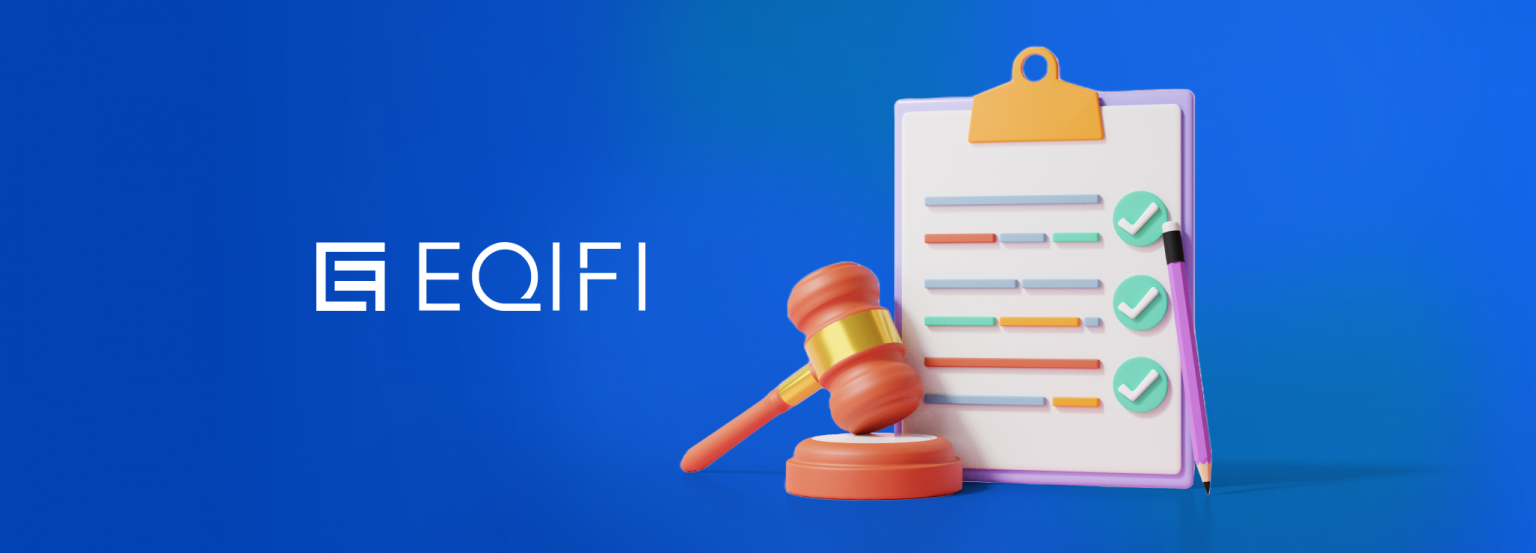Why Being Licensed and Regulated Matters in Decentralized Finance

Decentralized finance (DeFi) is a rapidly growing industry. It offers many advantages over traditional finance, including unique financial products, unbridled accessibility, more transparency, and fewer fees.
However, there are also some risks involved for consumers. One of the biggest pitfalls in decentralized finance is the risk of dealing with unlicensed and unregulated financial entities, as they may not be as trustworthy or risk-averse as some traditional financial institutions.
Here, we’ll explore why regulation is so important to DeFi, why it helps consumers, and why licensed entities are a better bet than unlicensed ones when investing.
Why Regulation is so Important
Rules and regulations may seem contradictory to a financial space applauded for its freedom and lack of authority. Some investors may also take a contrary view of regulations in general. But regulations play an essential role in protecting consumers from dishonest business practices and risky financial products.
In decentralized finance, many financial entities operate without a license or adherence to any regulations. While this may seem to provide an advantage in the form of fewer fees or restrictions, it can also be dangerous because these entities aren’t subject to scrutiny from any kind of authority.
Even if an entity looks legitimate, there may not be as many checks and balances in place as one might think. Hypothetically, an unlicensed and unregulated entity could offer predatory loans, make false promises about investments, or even use backdoors to abscond with people’s assets (what’s known as a “rug pull”).
Still, some of the risks people associate with DeFi are also due to perception and misunderstanding.
According to Fortune, approximately $80 billion of capital has been contributed to DeFi protocols in the relatively short period the concept has existed. This type of significant investment can only be made by a high number of investors or by very serious investors with deep pockets. Furthermore, DeFi is based on open-source technology that is inherently transparent, and many of the risks associated with DeFi exist in the traditional market as well.
The Role of Regulation in the DeFi Space
To understand the role regulation will play in the DeFi space, it’s important to first look at decentralized finance itself.
Decentralized finance is just that—decentralized, meaning there is no central authority overseeing the financial entity. That means entities in the space aren’t answerable to a regulatory body and can technically do whatever they want with their services and products.
Most decentralized entities rely on blockchain protocols—public, decentralized, digitally distributed ledgers—to hold themselves accountable. Blockchain is a pretty effective means of accountability, and it can often be more transparent than the procedures and protocols inherent in traditional financial markets. That makes dishonest entities relatively rare in DeFi, although they do exist.
As such, decentralized finance needs regulations to ensure that all entities playing in the space are held to a certain standard. This is especially important when it comes to safeguarding consumers, who may not be as versed in the technology and risks associated with DeFi as seasoned investors.
In addition, by having regulations in place, DeFi can continue to grow and attract more significant investments. As decentralized finance becomes more popular and mainstream, it will be necessary for the space to have a robust set of regulations in place to protect everyone involved.
The Benefits of Licensed and Regulated Entities
The benefit of regulated banking entities is that they’re not only held to high standards but also held accountable for bad actions. If a licensed and regulated entity engages in bad behavior, it can be penalized or even shut down by regulators. They may lose their license as punishment for illegal or unethical practices, which means the financial entity’s reputation will suffer, and its ability to operate under similar terms again in the future will be hampered.
Regulating decentralized finance will also ensure that all decentralized entities treat consumers fairly. It even provides peace of mind for consumers and other businesses. If an individual or company knows the entity they’re working with is legitimate, they’ll have more confidence that their money is safe.
Finally, by regulating decentralized finance, the government can ensure that taxes are paid if applicable.
EQIFi’s Unique Offering
EQIFi is a unique and innovative offering in the DeFi space because it is powered by a licensed and regulated bank: EQIBank. Although EQIFi is a decentralized protocol for pooled lending, borrowing, and investing for ETH, its association with a regulated bank makes it subject to the same regulations as financial entities in any other market.
EQIFi is also the first DeFi platform powered by a licensed and registered financial institution, making it a pioneer in the DeFi space. It offers a uniform and user-friendly platform for investors of all stripes, including those who don’t have technical knowledge of blockchain or DeFi protocols.
🤖Follow us Twitter | Instagram | Facebook | LinkedIn